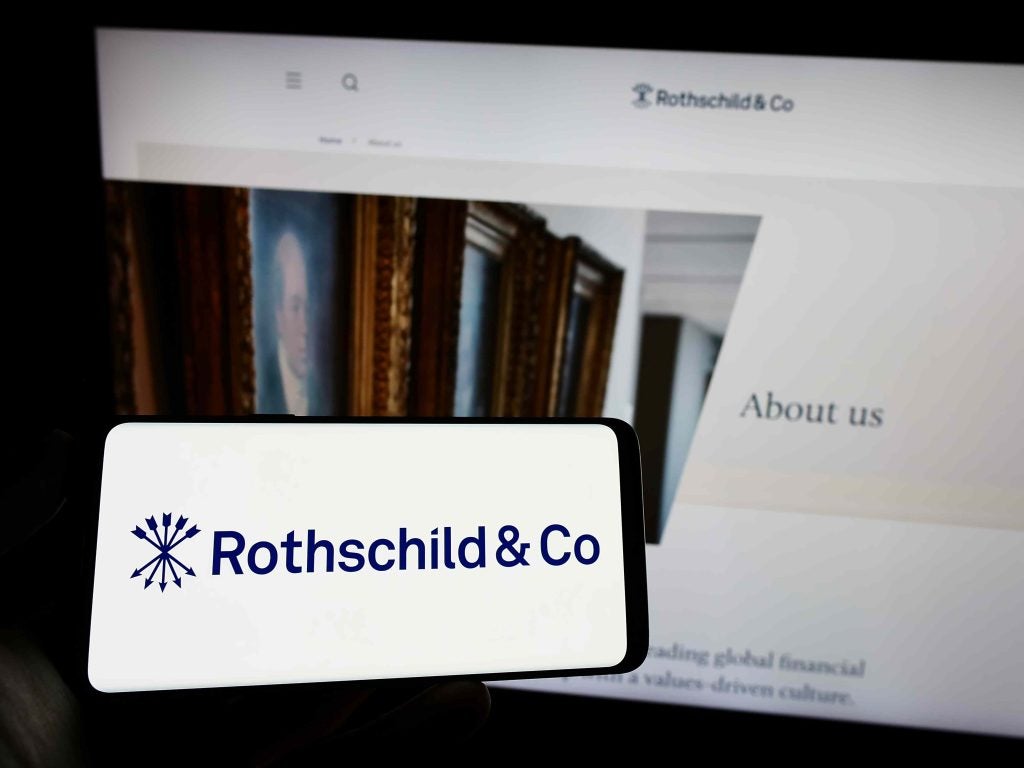The future of the wealth management industry will be shaped by a range of disruptive themes, with cybersecurity being one of the themes that will have a significant impact on wealth management companies. A detailed analysis of the theme, insights into the leading companies, and their thematic and valuation scorecards are included in GlobalData’s thematic research report,Cybersecurity in Banking – Thematic Research. Buy the report here.
Cybersecurity is the practice of defending computers, servers, mobile devices, electronic systems, networks, and data from malicious attacks. Cybersecurity in banking has become more important than ever as the rapid evolution of digital banking has resulted in customers finding it more convenient to manage their finances through online channels, exposing banks and financial institutions to increased levels of cyber threats. The impact of cyberattacks on financial institutions can be catastrophic, so innovation will be needed to counter the continuously evolving cyberthreat landscape in the retail banking sector, which includes both channel shifts driven by the pandemic and fallout from the Ukraine-Russia conflict.
However, not all companies are equal when it comes to their capabilities and investments in the key themes that matter most to their industry. Understanding how companies are positioned and ranked in the most important themes can be a key leading indicator of their future earnings potential and relative competitive position.
According to GlobalData’s thematic research report, Cybersecurity in Banking, leading adopters include: UBS, RBC, DBS, HSBC, T Rowe Price, Bank of America, Charles Schwab, Goldman Sachs, Wells Fargo, and OCBC.
Insights from top ranked companies
In 2012, HSBC failed to notice that Mexican drug cartels were laundering money through the bank. As part of a subsequent settlement with US regulatory authorities, HSBC was forced to invest millions of dollars into compliance and better security solutions. The bank has made significant investments to improve resilience and cybersecurity capabilities, thus enhancing its ability to detect, deter, and prevent cybercrimes. One of the tools developed uses data to look for unusual ties between its customers and companies to avoid further compliance failures. Using biometrics technology, HSBC has streamlined the login process through Apple’s Touch ID and HSBC Voice ID across its 18 markets, enhancing security. In 2017, HSBC Ventures invested $40m in Menlo Security—a cybersecurity company that helps businesses detect and respond to threats—to add Menlo’s capabilities and safeguard its own business from cyber threats. In 2021, it was announced that HSBC had selected Mailock, Beyond Encryption’s email security system, to assist HSBC in building enhanced digital relationships with their customers.
Goldman Sachs
Goldman Sachs has a team of experts and engineers who monitor and respond to cybersecurity threats, managing the entire process. The firm’s range of cybersecurity experts includes engineers charged with implementing solutions with security by design; threat analysts who analyse, detect, and respond to cybersecurity threats; and pen testers who identify vulnerabilities before attackers can exploit them. In 2019, Goldman also led an $8m investment into Immersive Labs’ cybersecurity skills platform. This uses real-time feeds of the latest attack techniques, hacker psychology, and technological vulnerabilities to rapidly build cyber wargames to train IT and security teams.
To further understand the key themes and technologies disrupting the wealth management industry, access GlobalData’s latest thematic research report on Cybersecurity in Banking.
- WealthSimple
- Betterment
- BlackRock
- SoFi
- Scalable Capital
- Moneyfarm
- SigFig
- Empower Retirement
- Acorns
- JPMorgan Chase
- Vanguard
- Stashaway
- Robinhood
- Magnum Research
- Fidelity
- Societe Generale
- Morgan Stanley
- UOB
- TrueWealth
- BNY Mellon
- St. James's Place
- Lombard Odier
- Bank of Montreal
- Santander Group
- ABN AMRO
- Citigroup
- Raymond James
- Julius Baer
- Vontobel
- UBP
Data Insights
From

The gold standard of business intelligence.
Blending expert knowledge with cutting-edge technology, GlobalData’s unrivalled proprietary data will enable you to decode what’s happening in your market. You can make better informed decisions and gain a future-proof advantage over your competitors.
Frequently asked questions
-
1. Why are Banks investing in cybersecurity?
Banks are investing in cybersecurity to protect sensitive customer data and prevent cybercrimes. With an increased number of users accessing their accounts remotely, online, or via apps, the need for cybersecurity protection is more pressing than ever. A major part of a bank's reputation rests on its ability to prevent and counter cybercrimes.
-
2. How do cyberattacks impact the Banking industry?
Cyberattacks can have catastrophic impacts on the banking industry, including loss of sensitive customer data, financial loss, and damage to reputation. Banks hold some of the most important data, including direct access to life savings, and must ensure they adopt a solid cybersecurity strategy to protect this sensitive data.
-
3. Which Banks are leaders in cybersecurity adoption?
HSBC, CaixaBank, Goldman Sachs, Santander, DBS Bank, and Deutsche Bank are some of the leading cybersecurity adopters in the banking industry.
-
4. Who are the leading vendors of cybersecurity to the Banking industry?
Leading cybersecurity vendors to the banking industry include IBM, Check Point, FiVerity, Checkmarx, Armis, Thales, Idemia, iSignthis, One Identity, CyberArk, Trustwave, and Wipro.
-
5. How does increased investment in cybersecurity benefit Banks?
Increased investment in cybersecurity benefits banks by engendering trust with their consumers, knowing their money is safe. By adopting a well-thought-out cybersecurity strategy, banks can prevent and counter cybercrimes, protect sensitive customer data, and prevent financial loss.
-
6. What are the challenges with adoption of cybersecurity in Banking?
The challenges with adoption of cybersecurity in banking include legacy tech vulnerability, heightened fraud and cybersecurity risks.
-
7. What is the projected market size of cybersecurity in Banking?
According to GlobalData estimates, global cybersecurity revenues in retail banking sector will grow at a compound annual growth rate (CAGR) of 8.1% between 2020 and 2025.
-
8. Who are the leading specialist cybersecurity vendors in Banking?
Leading specialist cybersecurity vendors in banking include Armis, CyberArk, FiVerity, Idemia, One Identity, Thales, Trustwave, and Wipro.
-
9. What are the components of the cybersecurity value chain?
The cybersecurity value chain for banking is broken down into tech vendors within cybersecurity, tech vendors specializing in banking, and the industry's leading adopters of cybersecurity. The components of the cybersecurity value chain include hardware, software, and services such as unified threat management, vulnerability management, application security, managed security services, risk and compliance services, and post-breach response services.









